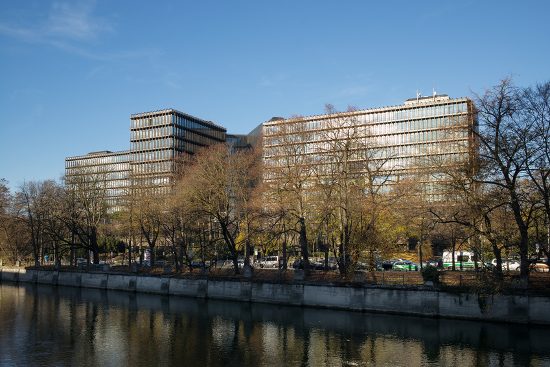The Unbearable Lightness of the European Union

In the aftermath of Brexit, the European Union faces one of the worst crises in its short history. Many are asking, in a kunderian way, whether or not there is still a reason for the existence of the EU.
Can the positive aspects of the EU be enjoyed by the UK while leaving the negative ones behind?
One of the first moves made by British politicians, apart from resignations, has been showing a great deal of interest in continuing to be a part of the European single market despite withdrawing politically from the EU. Nearly all those involved in the political wing of Brexit emphasize the convenience of remaining economically integrated with the rest of Europe (refuting the clichés on isolationism).
It would seem, at least from an economic standpoint, that the United Kingdom could enjoy the best of both worlds if negotiations hammer out as hoped: integration in the European single market (the largest in the world in terms of GDP) and a breakaway from the many inefficient and costly laws imposed by Brussels.
Anti-European sentiment among many
A growing wave of anti-European sentiment exists throughout Europe. In the majority of countries, this sentiment is coming from the extreme left (Spain or Italy) or from the extreme right (France or Austria). Most believe that the ideal situation would be to break all links that connect their countries with Europe, be it political, trade, commercial or migration (in this last case, the left tends to differ).
In this sense, the case in England is a rarity. There exist two streams of thought inside Brexit advocates, one of which is quite similar to that of the rest of Europe: primarily isolationist and protectionist, centered against the free movement of persons. As previously mentioned, however, this stream of thought does not seem no be taking the reigns in the political spectrum, even as popular as it may be.
Within the opinions on Brexit, there exists another ideology that proposes cutting all political ties and keeping the social and economic ones. This idea is against to create a centralized political system while keeping the single market intact and holding onto the social and economic ties to the rest of Europe. It´s an attempt to recover the Original European institutions (those from the 50s); those that saw business freedom and trade as the perfect vaccine against armed conflicts.
Unfortunately, since the 90s, European institutions have shifted towards political centralization. In many cases, this curtails economic freedom provided by the original institutions. Currently belonging to the EU still offers the benefit of the single market and therefore the free movement of goods and services, capital, and, to a lesser extent, of people, but the inconvenience of having to deal with growing regulatory costs and an enormous economic interventionism from the outside.
The second ideology of Brexit seeks to conserve the benefits of the EU while getting rid of the inconveniences, just as Switzerland, Norway or Iceland already do; all of which enjoy access to the single market and are politically decentralized.
Will European Union bureaucracy allow for the United Kingdom’s access to the single market?
Economic performance in the UK during the next years will depend on 2 factors:
1- That the second of the two aforementioned Brexit ideologies comes out on top (political decentralization and social and economic integration with the rest of Europe).
2- That European institutions do not impose sanctions on the UK and allow it to hold a similar position as other non-EU countries that have access to the single market.
This second factor is especially difficult, most of all because it may imply the failure of European political integration. Also, evidently, the withdrawal of a country from the UE is frowned upon (it has been a non-exit club up until now).Much more threatening is that the country that withdraws become economically superior to the rest of the countries (many others will want to follow suit).
The economic performance in the UK for the coming years will depend on political decisions, many of which will not be based on the wellbeing of the citizens but rather on the wellbeing of the decision-making politicians and bureaucrats.
If the UK becomes an example of social and economic integration success, with remarkable economic performance, it will become a pain in the neck for the bureaucrats in Brussels.
If the UK becomes a disaster in the next years, experiencing flight of capital and businesses and drops in currency and stock markets, it will provide a reason to avoid future withdrawals from the increasingly interventionist European Union.
The crucial dilemma
Most certainly, the European Union, in its unbearable lightness, finds itself in a complicated political situation. If it allows the UK access to the single market, it will prove that political integration means economic disaster. If it denies access, it is deliberately sinking the English ship in order to remain afloat for some decades until the world’s economic stronghold re-docks at the Asian emerging economies´ shores. In both cases, the lack of regulatory competition and dirigisme in Brussels are condemned to fail. The crucial dilemma then becomes whether or not the European policy agenda will fail in the short-term or the long-term.
If short-term, there exist two possibilities:
- Disintegration from the radical left or right. A return to the inefficient autarkic economy. Typically, autarkic models are a source of conflict (if a resource cannot be obtained through trade, taking it by force it´s seen as an option).
- Integration 50s style. A return to free movement of goods, persons and capital with regulatory competition. Competition among different jurisdictions seeking to attract capital and investments. Economic growth rebounds and Europe cements itself as the world’s economic stronghold.
If the failure occurs in the long-term, Europe becomes a single political bloc. Tax harmonization (with tax increases in low tax countries) becomes a reality, a single European treasury is created, and a mega European State emerges. Europe sees a growing geopolitical importance. However, its growing intervention in economic life and legislation inflation with absence of regulatory competition, weakens economic growth. The important economic role of the European Union (at present number one in the world) could drop sharply to number three (behind USA and China) and, in the medium/long term, to spot four (when India giant steps up).
Up until Brexit, the European Union was headed toward a failure in the long-term. Brexit has now opened the possibility of short-term failure in the form of returning to the original libertarian institutions of the European Union.
Get our free exclusive report on our unique methodology to predict recessions

Daniel Fernández
Daniel Fernández is the founder of UFM Market Trends and professor of economics at the Francisco Marroquín University. He holds a PhD in Applied Economics at the Rey Juan Carlos University in Madrid and was also a fellow at the Mises Institute. He holds a master in Austrian Economics the Rey Juan Carlos University and a master in Applied Economics from the University of Alcalá in Madrid.
Get our free exclusive report on our unique methodology to predict recessions


